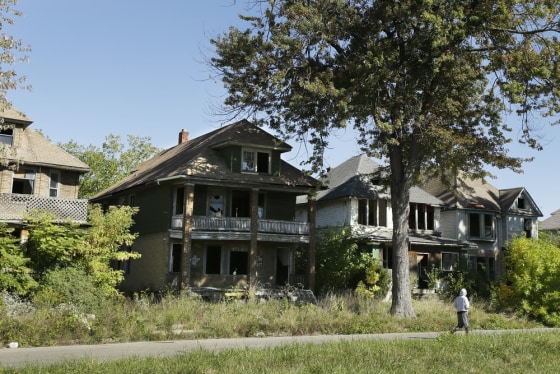The federal government has come up with a $300 million package for Detroit to knock down empty buildings, hire firefighters and add buses, as the city struggles after filing for the largest municipal bankruptcy ever.
While the promised aid is far short of the $80 billion in financing extended to the auto industry during the financial crisis, it will at least help the city tackle widespread blight, one of its worst problems.
The federal aid has been tapped from a variety of existing programs and is part of a patchwork of grants complementing investments by the city, state and private foundations.
"We're going to continue to support the efforts under way in Detroit and ensure the federal government is an active partner in supporting the revitalization of the city," said Gene Sperling, director of the White House National Economic Council, who has led federal discussions with Detroit on how best to help.
The Treasury Department is also lending one of its own, Don Graves, a deputy assistant secretary and top economic development official, to spearhead the federal response to Detroit's Chapter 9 bankruptcy filing.
Sperling announced the appointment on Friday during a press conference with Obama administration, state and city officials. Graves will report directly to President Barack Obama, Sperling and Sylvia Mathews Burwell, the head of the Office of Management and Budget.
"This effort is about lifting up Detroit, and committing to a shared, long-term investment that will enable the businesses and residents in Detroit to expand opportunity and renew this world-class city," Sperling said in a statement.
The plan includes about $150 million to tear down dilapidated properties and revitalize blighted neighborhoods. Some of those funds will come from the federal government, with other funds coming from the city, state, businesses and the Ford, Kresge and Skillman foundations.
The federal government also will pledge $25 million to hire 150 firefighters, and provide more than $100 million in transit grants for buses, a streetcar project, and a bus rapid transit system, the White House said.
The White House has said since July 18, when the city filed for bankruptcy, that it would try to find ways to help Detroit, while making it clear that a bail-out was not an option.
